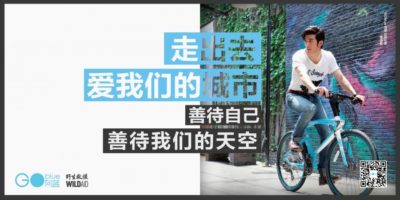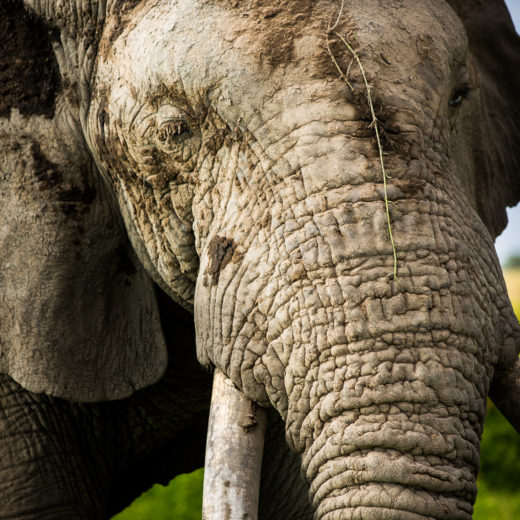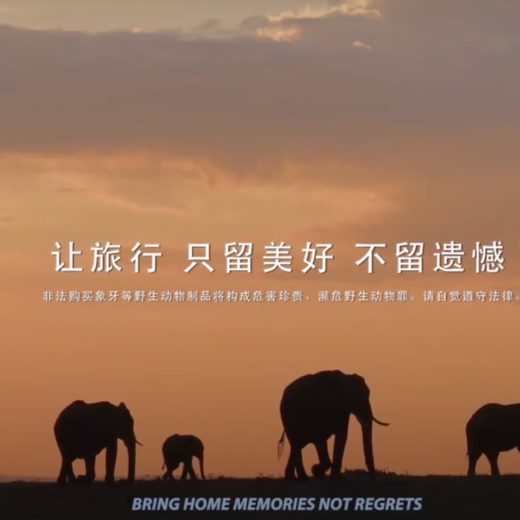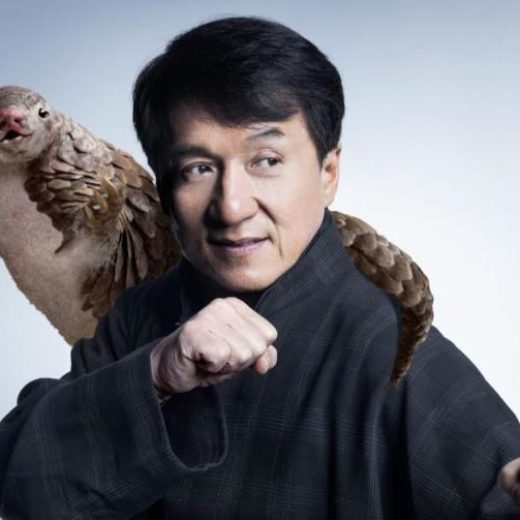
WILDAID CHINA
BEIJING (September 22, 2016) — Today, on World Car Free Day, WildAid released the latest PSA series from our GOblue campaign to promote low-carbon transportation across China. The series of three ads features Chinese celebrity ambassadors including actress Gao Yuanyuan along with actor/singer Li Zhiting, advocating for bicycle transportation to combat air pollution and climate change. The PSAs and billboards appear in subway stations, airports and public spaces across China.
Each celebrity PSA was filmed in a different city — Beijing (Gao Yuanyuan), and Guangzhou (Li Zhiting) — and features the stars riding bikes and walking as they encounter a unique and interesting side of their city that’s missed while in a car.
“I feel like I am a part of this city and getting out on a bike is a greener way to get around,” said Gao Yuanyuan in her Beijing-based PSA. “While it might not provide instant changes, I’m willing to do my minor part to help make my city a better place.”
Gao Yuanyuan Beijing GOblue PSA from WildAid on Vimeo.
In 2015, the Ministry of Environmental Protection analyzed the chief sources of air pollution in nine major cities across the country and found that vehicles were the largest contributor to air pollution in at least five, including Beijing, Shanghai, and Guangzhou, where the PSAs were shot. Biking is one major way in which Chinese can reduce air pollution.
Air pollution affects life in China in numerous ways:
Each year, at least 500,000 premature deaths can be attributed to air pollution. Other estimates are higher, including one from Berkeley Earth in California that puts the number at 1.6 million, and another from the Max Planck Institute in Germany that estimates 1.4 million.
In northern cities, where air quality is on average much worse, life expectancy is 5.5 years lower than in southern cities.
In the past 30 years, deaths from lung cancer have risen 465%.
A 2015 WildAid survey showed that 88% of people in Tier-1 cities believed vehicle exhaust was the main source of haze. Despite 58% of survey respondents believing that the government and individuals are equally important in affecting change, the top ways respondents believe air quality can be improved are all government-led actions. GOblue reminds citizens that they can make a difference, too; especially, the 73% of car users that report willingness to reduce driving time to improve air quality.
“We want the public to realize that everyone is a part of their city and that we all have a stake in our common urban environment,” said Acting Chief China Representative Steve Blake. “When citizens come to love and appreciate their city, they will be more likely to take care of it. China was once the country of biking and can be again. Through this simple change, we can help address serious problems including air pollution, climate change and personal health.”
To further celebrate World Car Free Day, WildAid partnered with Wanda Cinemas across the country, BHG shopping centers in Beijing and the electric bus service Jiewo for three separate events: Bike to Movies, Bike to Shop, and GOblue EV bus services, in order to encourage the public to choose low-carbon transportation options in their daily lives. Other media partners including JCDecaux and Dynamic Advertising Channels are distributing billboards in subways and airports.
About GOblue:
GOblue is a WildAid initiative to promote low-carbon transportation across China, including bicycling, public transit and new energy vehicles. GOblue believes that we cannot solve China’s environmental crises without changing the behavior at the individual level. Through positive, aspirational public awareness campaigns and in-person events, GOblue makes sustainable lifestyles an improvement to quality of life, rather than a sacrifice, with the slogan “Go out, love our city. Treat yourself and the sky well.”
Li Zhiting Guangzhou GOblue PSA from WildAid on Vimeo.
Stay in touch and get the latest WildAid updates.
SIGN UPAbout WildAid
WildAid is a non-profit organization with a mission to protect wildlife from illegal trade and other imminent threats. While most wildlife conservation groups focus on protecting animals from poaching, WildAid primarily works to reduce global consumption of wildlife products such as elephant ivory, rhino horn and shark fin soup. With an unrivaled portfolio of celebrity ambassadors and a global network of media partners, WildAid leverages more than $308 million in annual pro-bono media support with a simple message: When the Buying Stops, the Killing Can Too.
Journalists on deadline may email communications@wildaid.org


